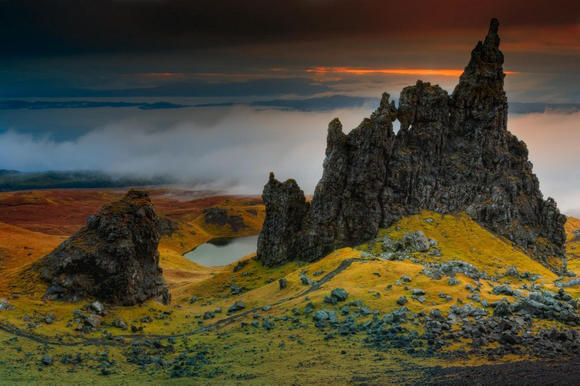The Earliest Form of Life From 4.28 Billion Years Ago Discovered
Every time we keep on looking back in history to find the earliest traces of life we keep on finding earlier evidence of when life began on this Earth. There is a precise correlation between the prehistoric age and the size of evidence.

A new study has discovered evidence that life on Earth has started somewhere between 3.75 and 4.28 billion years ago.
A team of researchers from the University College London has gone on a hunt to find microbial life on the oldest rocks that are present on our planet. The research team analyzed a fist-sized rock from Quebec, Canada, estimated to be between 3.75 and 4.28 billion years old.
The rock had been collected from The Nuvvuagittuq Greenstone Belt in Quebec, known to house the oldest rocks on Earth.
Looking at the rocks on a microscope showed “tree-like” stems with parallel branches as if the rocks have some sort of biological origin. Such a microbiological structure could have not been created through a chemical reaction but through the impact of a biological entity such as ancient bacteria.
In order to get such an accurate view at a micro level, the researchers had to slice the rock into sections as thick as a piece of paper or 100 microns in order to properly view the structure at a micro-level.
The findings within the rock structure were compared to other old fossils and minerals examined previously. Other ancient rock specimens examined had a similar structure at a microscopic level, making the theory more plausible.
Researchers also discovered debris on a micro-level that showed the different ways the microbes fed and sustained themselves in the beginning.
There were signs of mineralized chemical by-products in the rocks that are similar to ancient microbes living off the iron, sulfur, and carbon dioxide through a complex system of photosynthesis without oxygen.
This makes scientists think that life on Earth existed as early as 300 million years after Earth had been created. This microbial life was the first form of life that through the reinforcement of chemical reactions kept mutating and evolving to greater forms.
Dr. Dominic Papineau, lead author of the research from UCL is supporting the findings:
“Using many different lines of evidence, our study strongly suggests a number of different types of bacteria existed on Earth between 3.75 and 4.28 billion years ago. This means life could have begun as little as 300 million years after Earth formed. In geological terms, this is quick — about one spin of the Sun around the galaxy.” (Quote by Dr. Dominic Papineau)
Prior to this study, another old rock discovered in Western Australia which dated 3.46 billion years old had been examined, but the scientists from that study came to the conclusion that it was just a fossil with no biological origins.
The technology and techniques that have been involved in this recent study are states of the art, but more samples from diverse parts of the world would be required to give a more plausible conclusion.
